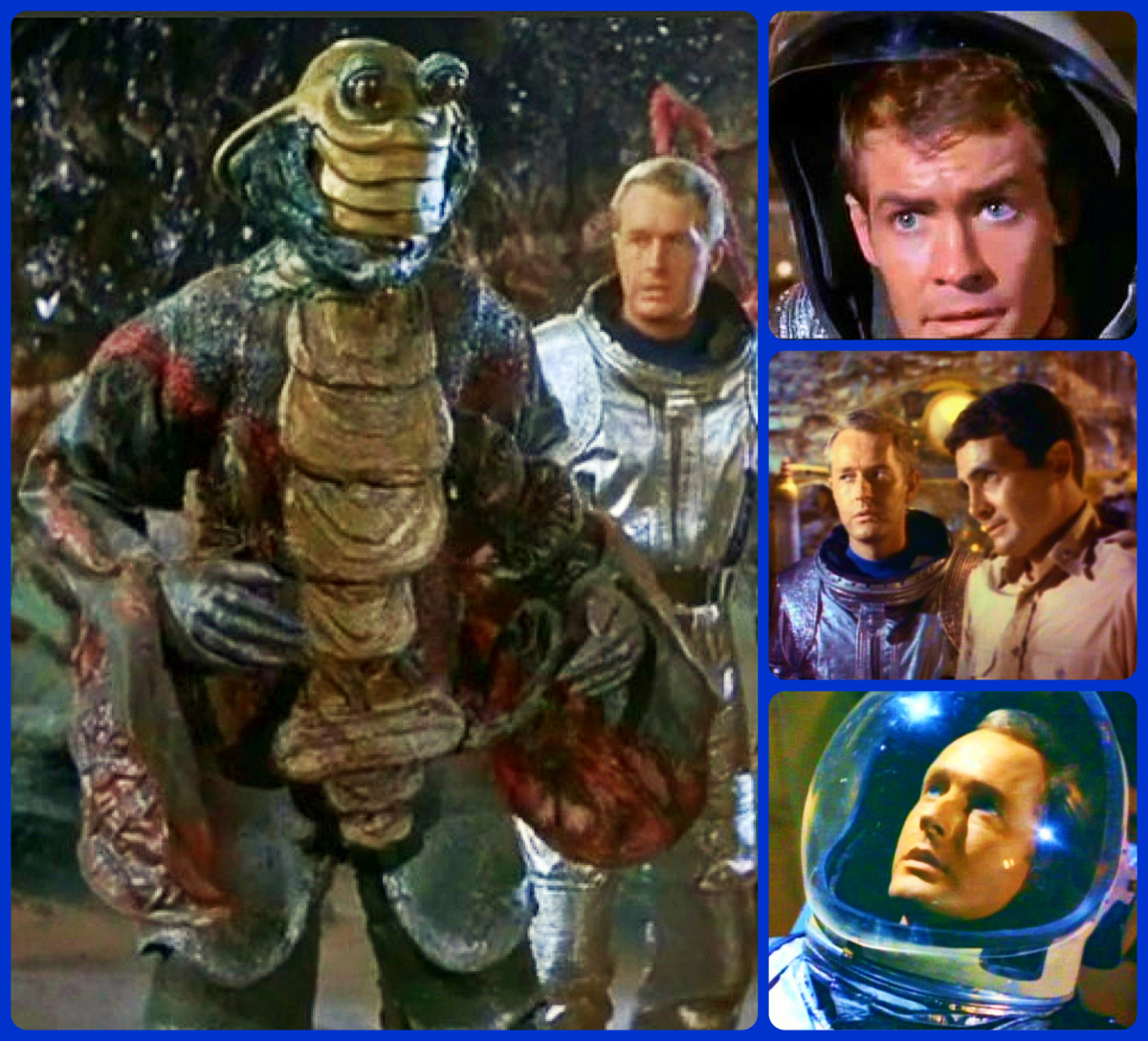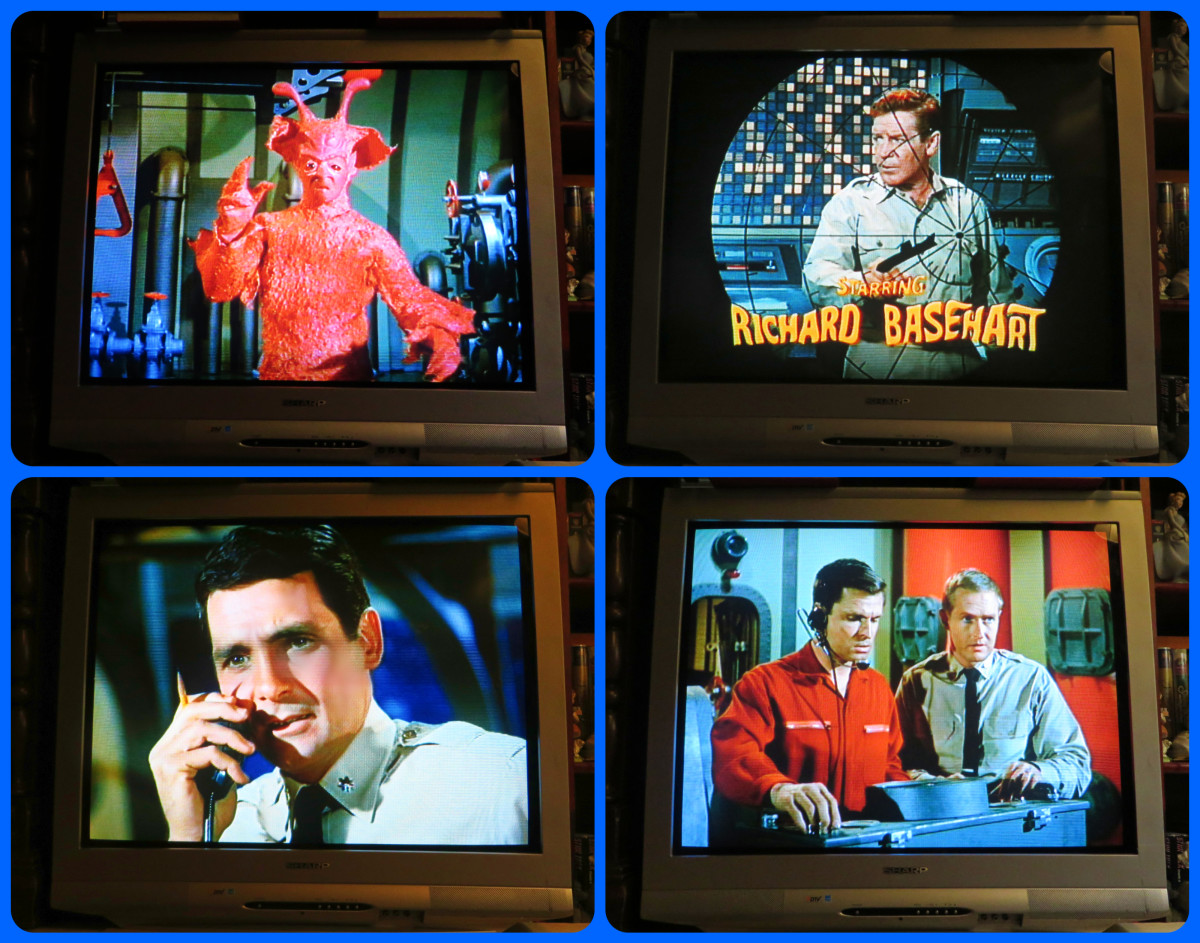Tube Tied: Being Pregnant on TV

Pregnant Pause
Have you ever watched your favorite show and seen the episode that you somewhat dread? You know when one character decides to become pregnant or in some cases is unexpectedly pregnant? Well, I have and sometimes it works to enhance the depth of the characters and other times it can be the death knell of a series.
This season, one of my favorite shows, How I Met Your Mother is preparing to add a baby to the series via Lily and Marshall. Ironically enough, this show hasn't really hasn't addressed parenthood in depth except in spurts. So I was very much interested in how this affected television as a whole. I'll be looking at sitcoms, dramas, and reality television and how maternity and babies play a role in revitalizing or damaging a series.

A Laughing Matter
The very first television show to prominently address pregnancy and babies was I Love Lucy. This was partly out of necessity as Lucille Ball was pregnant in reality and couldn't hide her pregnancy. At the time, even saying the word pregnant on television was considerably taboo, nevermind actually showing a visibly pregnant woman was almost unheard of. Censors were not too accommodating, preferring that expecting be mentioned. When Lucy actually did go into labor, it became one of the series' highest rated episodes. The show didn't suffer as a result but continued to succeed until it went off the air in the late 1950s. Other shows soon followed suit.
Pregnancy became a hot-button political issue when outspoken feminist Maude decided to have an abortion after discovering she was pregnant at the age of forty seven. In the episode entitled, Maude's Dilemma, Maude discussed the options with her husband and adult daughter. In the end she decides to end the pregnancy. This was the year before Roe v. Wade gave women nationwide the choice to legally end a pregnancy. Even though this didn't particularly feature a baby, it is one of the most memorable moments in television history. The politics surrounding the decision rather or not to have a child hasn't changed as much offscreen as it has onscreen.
Flash forward to the 1980s and pregnancies on television shows increased. This was particularly a common device on shows such as Family Ties. Elise Keaton became pregnant on the verge of her oldest child, Alex, going off to college. This occurred in the fourth season when the show hit its ratings peak. In a now commonly used device (see The Fresh Prince, Growing Pains), the youngest Keaton was aged a few years in later seasons to keep up with the other characters. This maneuver eventually signaled the end of the show as a force to be reckoned with and became a harbinger of the end of the series.
More recent trends have been included to reflect the changing times. If your around during the early 90s, you surely remember the Murphy Brown/Dan Quayle debacle in which Quayle decried the character's choice to be a single mom. This became a hot debate in political and social circles. It eventually died down and Murphy Brown was able to be a successfully deliver her son to the tune of thirty eight million viewers.
Another trend of the past ten years is the on-again/off-again relationship that climaxes with a pregnancy. One show that dealt with this was Sex and the City, which given the title didn't come as too much of a surprise. However, Miranda Hobbes, the expectant high powered attorney did see it as such, given that the baby's father was ex Steve Brady. Eventually her pregnancy and subsequent birth served as a catalyst for Steve and Miranda to eventually reconcile and marry. Friends is another example of this as Ross and Rachel finally confronted adulthood and each other with Rachel's surprise pregnancy.
Sitcoms will continue to evolve in how babies are sired into plot lines, jokes, and histories.

A Delivery of Drama
Dramedies, medical dramas, and family dramas are also shows with pregnancies written into them to either test the character, test their relationship, or take the show in another direction. Or in some cases the pregnancy is establishing a show.
One example of this would be the show Providence which ran for a few seasons on NBC in the late 1990s and early 2000s. The character that was pregnant was Joanie, sister to main character Syd. She decided to marry the father of the baby, but at her wedding her mother's death derails those plans. After giving birth, she decides to pursue single motherhood and it plays into the storylines about her quirky sense of independence.
In the fast paced world of medical dramas, babies are often seen being delivered to patients, but when pregnancies affect the professional it changes the dynamic of the show. In ER, Carol Hathaway's pregnancy became the deciding factor of her relationship with Dr. Doug Ross. Upon becoming a mother she settles into life and decidedly reunites with Ross after a failed attempt at being a single mother. The friction between career and motherhood was one dynamic that also intensified the drama.
More recently, cop shows have addressed motherhood with a newfound tenderness. Gone are the days of Cagney and Lacey where the characters had to be moms around their duties as cops. There is a more enlightened approach with the changing guard of the times. Samantha Spade, an agent on CBS' Without a Trace became pregnant after a one-night stand. She had to retrace her steps to find who the father was. Unfortunately, the show was canceled before the show could really elaborate on what happened to her and her child.
As society has reflected, the focus on teen pregnancy has been increased due to well publicized pregnancies of public figures such as Jamie Lynn Spears and Bristol Palin. The hit musical dramedy, Glee, in its first season tried to capture the drama of motherhood wrapped in a comedic shell. Quinn Fabray, head cheerleader, fooled her then-boyfriend Finn Hudson into believing he was the father while trying to eradicate the memories of her one-night stand with Noah Puckermann. She also realized that she couldn't handle the responsibilities of motherhood and a real future, so she decidedly gave up the baby for adoption. Teen pregnancy was also addressed in the ABC Family hit, The Secret Life of the American Teenager.
Back to adoption, medical drama House had a sub-plot in which House's boss and future girlfriend, Dr. Lisa Cuddy, adopts. At the time she wasn't in a relationship and after a botched attempt at getting colleague, Dr. Robert Wilson to father the child, she decided to pursue adopting a newborn. This of course caused conflict between Cuddy and her work load as well as her relationships. It even got to such a point where Dr. House himself babysat in order to further the potential of a romance between House and Cuddy. Eventually it worked out, but her relationship with House did not as she left the show at the end of season seven.
Motherhood, as evolved as it is in real life has always become a topic of interest. Bringing a new life means rearranging a current one in such a way that tests the person's character and ultimately their relationships.No matter if it's pregnancy or adoption, there's always going to be an interest in the maternal or not so maternal instincts of women who have children.

The Ultimate Reality Check
Reality television is interesting in how babies and motherhood have been addressed. In its earlier incarnations, there was a focus on extreme births, new families, and the joy of motherhood. The past few years have addressed harsher realities.
TLC's A Baby Story, is essentially the last part of a romantic arc that the network once pioneered. There was A Wedding Story which focused on the courtship and marriage of a young couple and then there was A Baby Story that advanced the story to accentuate the excitement of a new life coming into the world. The couples were married and purposely conceived the child. They also were established in their careers so the show had virtually no element of stress outside of the labor and delivery.
Another show TLC has produced in recent years upped the ante on drama by focusing on unexpected births. I Didn't Know I Was Pregnant focuses on women of various ages and life stages who suddenly give birth when they didn't know they were expecting. The show is framed by a mini biography of the mom, including a synopsis of the relationship with the baby's father and then launches into the intensity of having the woman going into labor. Of course the show still ends rather happily with the new moms being grateful no matter how frightening the circumstances surrounding the birth were.
However, with the renewed focus on teen pregnancy, MTV's 16 & Pregnant and Teen Mom have taken the place as the premier pregnancy reality shows. 16 and Pregnant focuses on the teenage expectant mother under stress in the later weeks of pregnancy. There's heightened conflict between her, her parents, the baby's father, and his parents. The show usually begins with an anecdote about their prior success and then ends with something like, "Everything will change because now, I'm pregnant." As the show progresses, the stressors surrounding the birth increase and their is a climax in the drama between the mom to be and the other person she's in conflict with. The only truly serene or calm moment is the birth of the child which sometimes helps end the drama or sometimes ends in a cliffhanger that might later be explained in spinoff series, Teen Mom. Teen Mom is primarily focused on the years afterward in which the new mom has to readjust her life to the reality of motherhood and not her youth. It serves as a lesson for any young person considering sex and not really knowing the eminent consequences of it.
Whether or not every situation is real or scripted, there has been an impact on society by actually witnessing the lives of teen moms, new moms, unexpectedly expectant moms suddenly facing the impending changes of motherhood. As society evolves and the women's roles change, motherhood on reality television and television as a whole would inevitably evolve as well.
Please let me know in comments what you think about babies on television.
- TV ACRES: Censorship & Scandals > Lucy\'s Pregnancy (I Love Lucy)
- Maude\'s Choice | EW.com
When the character decided to have an abortion 21 years ago, the show and star Bea Arthur made TV history - 10 Sitcom Cliches That Just Need to Die Already
- Dan Quayle vs. Murphy Brown - TIME
The Vice President takes on a TV character over family values - TLC\'s \'Didn\'t Know I Was Pregnant\': Toilet Humor, Babies - TIME
TLC's hit freak show 'I Didn't Know I Was Pregnant' evokes horror, fascination and maybe a bit of envy - Quinn Fabray - Glee
- MTV\'s 16 and Pregnant (Season 3) | Full Episodes, Photos, Episode Synopsis and Recaps | MTV
Free full episode videos, photos, full episodes and recaps of MTV's 16 and Pregnant (Season 3) on MTV.com.






